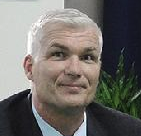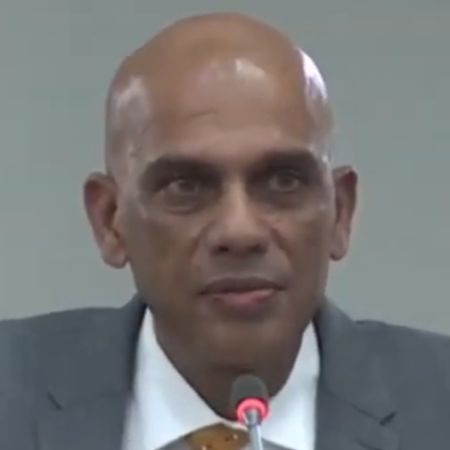HPSG claims that the company is led “by a Danish management with specialists in all fields of green energy.” But behind the green facade stand a cast of characters from the Danish business world who have no documented experience building green power plants.
Jesper Nielsen, the founder of HSPG, was by his own account trained as a shipbuilder, but over the last eleven years he has founded or managed fourteen different companies that have ended in bankruptcy or involuntary dissolution, mostly in the construction and real estate industries.
HPSG’s CEO, Benny Falk, describes himself as an architect. He trained as a mason and a massage therapist, but is perhaps best known for his participation in the survivalist reality programme The Robinson Expedition in 2001.
In the decade that followed, he was associated with a series of construction and real estate ventures that ended in bankruptcy. A court verdict obtained by Danwatch and Ekstra Bladet reveals that he was arrested in Copenhagen Airport in 2010 when arriving from Uganda with twelve uncut raw diamonds, commonly known as blood diamonds, valued at approximately $53.000 (DKK 345.000). He was sentenced to a fine of $13.200 (DKK 86.000) in 2013.
In addition, Benny Falk is the owner of a medical cannabis company in Portugal, and he has formerly established an English company, which was half-owned by another company on Isle of Man, a well-known tax haven.
Our investigation also reveals what appears to be business connections between Benny Falk and Klaus Garde Nielsen, dubbed “Denmark’s King of Bankruptcies”, a notorious Danish businessman who has been sentenced to multiple jail sentences, convicted of fraud, pimping and other crimes.
In interviews with Danwatch and Ekstra Bladet, Benny Falk admits that he knows Klaus Garde Nielsen, but he denies having any business relations with him. Klaus Garde Nielsen refused to comment on his relation with Benny Falk.
The people surrounding Jesper Nielsen and Benny Falk have no experience with green energy either. HPSG’s chief operating officer, Michael Lumby, founded the medical cannabis company Cibid Group ApS, while the company’s press officer, Niels Jørgen Langkilde, was until recently listed on Cibid Group’s website as its communications advisor.
Langkilde is a former member of the Danish parliament from the Conservatives and he is the current national chairman of Patientforeningen, the largest Danish advocacy organisation for patient rights.
HPSG’s co-founder and investor, Jesper Carvalho Andersen, is the former managing director of Scandinavian operations for Inditex, a clothing retailer that counts Zara among its holdings.
COO Michael Lumby denies that the team’s lack of experience is a problem.
“Our advantage is that we are adaptable. I’d say it’s harder to build a pharmaceutical factory than an energy park,” he tells Danwatch and Ekstra Bladet, referring to his experience in the medical cannabis industry.












